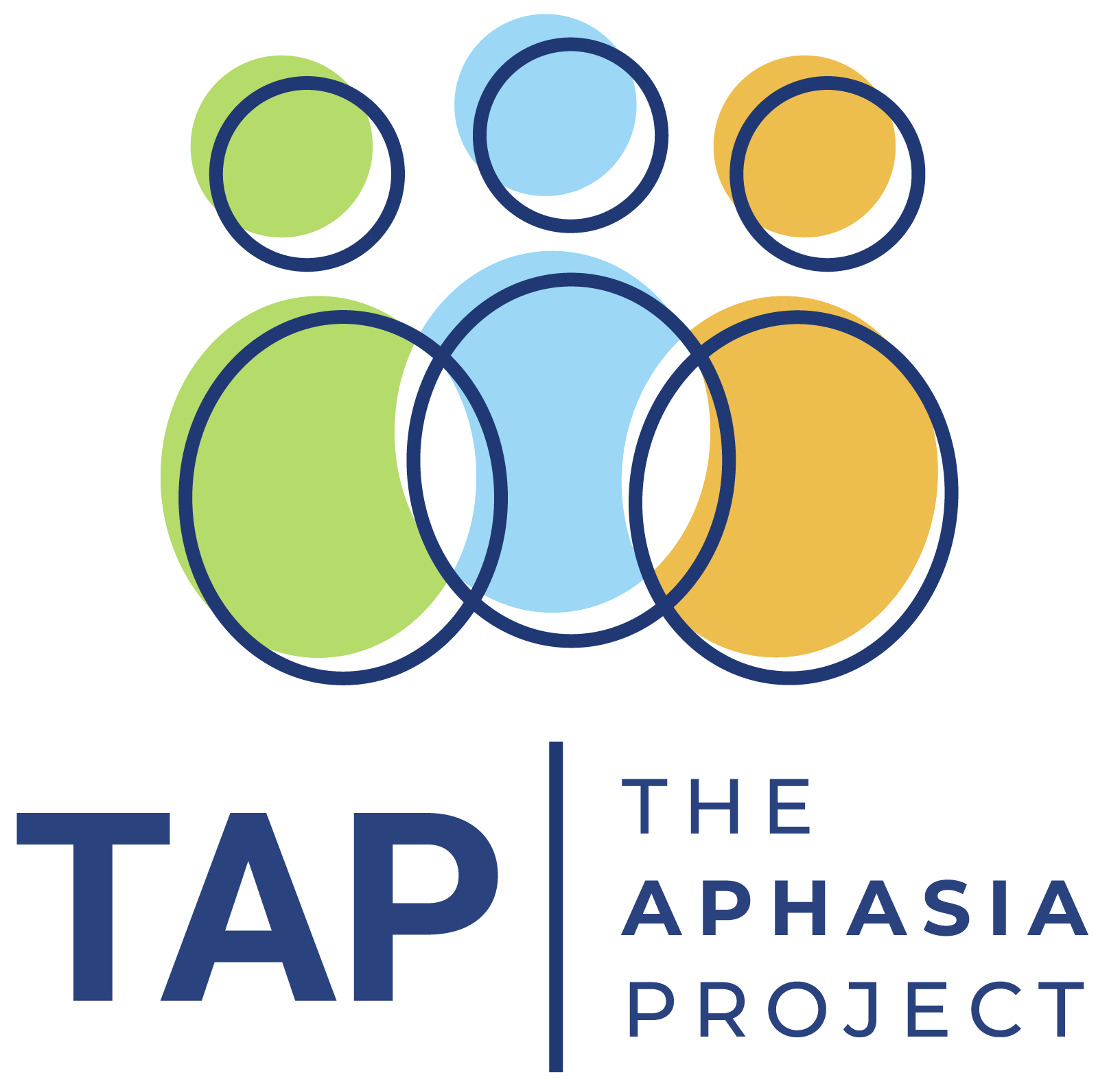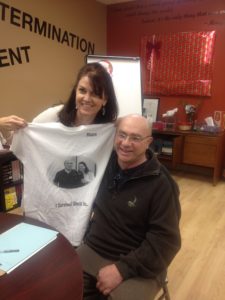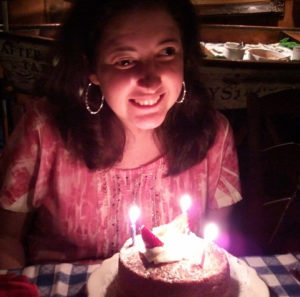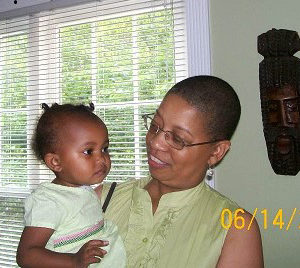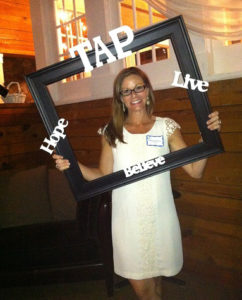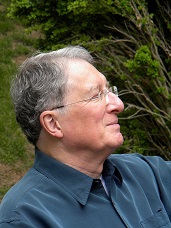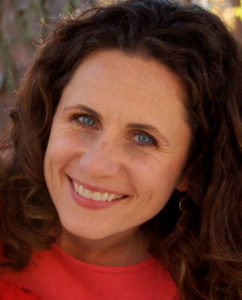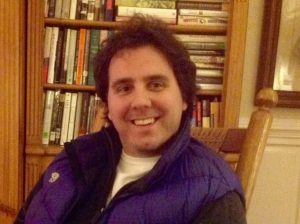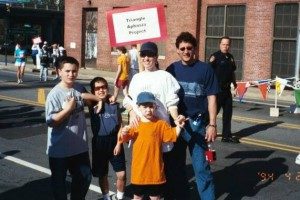One Of The LUCKY Ones?
The stroke that hit me in May 2013 impacted the right side of my brain, which lead to physical disabilities to the left side of my body. My speech was not affected to any great extent.
At the time, I was enjoying life to the fullest. My eldest son was to get married the following weekend, and we were preparing the house and garden for the welcome invasion of family and friends visiting from afar. My business was in its infancy, but on the cusp of some great and exciting developments. Much was going my way when the stroke happened out of the blue.
After convalescing at WakeMed, I was referred to Maura Silverman as a highly regarded speech pathologist and a person that could play a major role in my recovery process. But I could speak – surely I didn’t need any help in that area?…
Archives: Client Stories
Client Story news and reviews
Meet Rachel
On June 2, 2009, my life changed forever. I had a horrible car accident and was at WakeMed Hospital for five months. I had multiple injuries which included no use of my left arm or hand, very serious vision problems, and a traumatic brain injury. The TBI was the worst. My short-term memory was very poor and I was totally unable to speak. My mother has since told me several times how terrifying that was for me and her and my father. Can you imagine a 26-year-old who could not convey any basic needs to their parents, much less nurses and doctors? After leaving the hospital I spent at least two years on and off in physical, occupational, and speech therapy at WakeMed.
One day, while I was in speech therapy before my discharge in October 2009, my mother asked the therapist, “Rachel will talk again, right?” The response was: “She may say words, possibly short phrases, maybe talking, but maybe not.” My mother never for one moment thought that worst case scenario could happen. She knew I would talk endlessly as I always had! And the great news has been that I’ve started regaining my speech slowly but surely since that time.
About a year after my car accident of June 2009, I started attending the TAP weekly meeting in Cary. Luckily we had met Maura while I was still in the hospital…
Meet Alan and his wonderful wife, Joanne
Three weeks after serious cancer surgery in January 2013, Alan suffered a stroke which destroyed the receptive language area of this brain and weakened the right side of his body. His primary diagnosis of Wernicke’s aphasia was devastating. He felt frustrated, angry, sad, stupid, and INVISIBLE. His language was largely meaningless jargon. This second crisis threw us into a new reality. We could no longer live on our hillside California home of 50 years, so three days after his release from the urgent care hospital in California, his doctors gave us permission to relocate to our daughter’s home in North Carolina. It took months to find the appropriate medical doctors and get started on our marathon of therapies.
Somewhere along the line we were led to believe that we could expect little to no progress after one year post-stroke. I was terrified that we had only six months to regain some of his ability to communicate his thoughts.
Now comes the good part…..
A Pharmacist and Father
From David’s daughter, Elizabeth:
When my father, David Hornshuh, asked me to revise something he had written to contribute to “12 Days of TAP,” I thought what better way to share a perspective from the family members that TAP had impacted, as well as those affected by aphasia?
Professionally my father worked as a consultant pharmacist in Medical Communication where fluency was important as he communicated with other health professionals and patients that called for drug information. If anyone was to win someone over just by speech it would be my dad. My father has always served as a figure in my life as someone who was intelligent, strong-willed, and independent. He has always been active, healthy, and successful. He is someone who would intimidate you, yet make you laugh. I looked to him for encouragement and strength and never realized that someday he may rely on me, my brother Nicolas, 14, my sister Alexa, 11, and my mom Huong for what he so naturally gave us…
Meet Krystal Jackson
From Nate (Krystal’s husband):
On what was a typical Saturday evening, January 8, 2012, Krystal Jackson, a seamstress and designer went to bed late, and later got up to wait for our youngest son to get home, as it was past his curfew. This is something she has done for all four of our children. Krys decided to wait for him and watch television in the family room. This was about midnight or a bit after. When she did get up, I was asleep and did not notice she was not in bed until around 11:30 or so, and went back to sleep. Around 3:00 a.m. our son must have arrived home and found Krys lying on the floor motionless…
The story of Ron Weidenfeller
From Ron’s wife, Linda:
My husband Ron was a college professor and a lover of reading, particularly nonfiction books. He prided himself on having read every book published about Presidents of the United States! In 2012 Ron had a stroke which left him with aphasia. While he didn’t have mobility issues, the loss he mourned the most was his ability to read for pleasure. As his spouse, I felt frustrated on how best to help Ron as I fully realized that loved ones are not always the best people to nudge the person toward hope and recovery. We were referred to TAP after Ron’s therapy program at Wake Med ended, and Ron made great progress in regaining his ability to enjoy his passion of reading by participating in the wonderful TAP Book Club as well as the Back To Work group.
Powerful enough without any introduction… Meet Austin!
Our son Austin was an athletic, healthy 18-year-old until one day in July 2013, he suffered a massive stroke while working out. In just a few weeks we were going to be moving him into Liberty University for his freshman year. Austin’s sudden stroke completely changed his life plan and instead he was fighting for his life in Duke’s ICU.
Austin had just graduated with honors from Apex High School in June. He was a member of the National Honor Society and an avid soccer player, playing all four years on the Apex soccer team. He was also actively involved in the leadership of the Fellowship of Christian Athletes club at Apex. He looked so forward to attending LU and hopefully playing on their soccer team.
One Volunteer’s Journey… Meet Stephanie
Enter 2014 and my desire to spend more time in my life in service to others. Couple this with a healthcare background and a friendship with Maura Silverman, and a new TAP volunteer was born! I intended to help with administrative tasks, organize and clean the office, and assist in fundraising events. I have done these things, but more importantly, I became involved with TAP clients and providers. I have learned that aphasia has no gender, color, or race. It affects the patient, their families, and providers. I have seen the challenges that aphasia presents, but have also witnessed firsthand how the people and resources at TAP improve the health, communication, and quality of life of its clients.
Meet Don Cowan
It was an ordinary Saturday in May 2011 for practicing attorney Don Cowan – an hour on the treadmill, fielding cell phone calls from clients whose concerns could not wait until Monday, prep time for the legal education seminars he regularly conducted for judges and fellow litigators, and an opportunity to kickback and relax, followed by an evening dancing at the wedding of a favorite law partner.
In the middle of the night a severe stroke transformed his life. Talented therapists returned him to a NEW NORMAL. Speech therapists at UNC Acute Rehabilitation taught him to swallow, find his voice, and begin the demanding (and continuing) work of verbal communication.
From TAP Group Leader, Lina
During my first couple of years working as a speech pathologist in the rehab setting with individuals with neurological communication impairments, I was constantly asked the same questions over and over towards the end of therapy: ”Where do I go from here?” and “What’s next?” Every patient had a similar trajectory – inpatient rehab to outpatient rehab and then what? Life, that’s what. But how do you do “life” with aphasia? ” Who’s going to understand me? Who’s going to be patient with me? It’s too frustrating. I just can’t do this.” That’s what my patients were saying. And unfortunately, as the expert I didn’t have any good answers.
Then, one day, things changed…
Meet TAP Client Ben Mauze and his mom, Melanie
In April 2011 when I was twenty-seven, I was living in Bolivia, where I had several jobs, mainly working as a mountain bike guide, but also as a location scout for the television show, “Ice Road Truckers.” One day, after being in a mountain bike race, I was doing jumps with my friends on about twenty-foot jumps. When I landed from one, my bike split in half and I got a traumatic brain injury. I was in a coma, in the hospital in Bolivia for a month, then transferred to Carolinas Medical Center for another two months. I lost the use of my right side, including my leg, my arm and hand, and half of my vision – and also my language. Now I have aphasia. I know the words but I can’t get them out. I also have trouble reading and writing, but it is getting better.”
If not now, when??? Meet Steve
As Maura’s husband, I have been a part of this wonderful organization called TAP since its inception all those years ago. It is humbling to read all of these “12 Days of TAP” stories and to see what this small, grass roots nonprofit can do by helping one person, one family, at a time. I could not be more proud of its accomplishments and thrilled for those patients and families who have benefited by its programs.
Personally, I am indebted to all of the volunteers, therapists, board members, and supporters who have helped along the way. TAP continues to exist because of a small but passionate group of individuals who know what it can offer. In order to keep it going, however, it takes more than passion. It also takes money. TAP does not have a million-dollar donor, an entire building, or a staff of 25. It has a small office, one part-time assistant, a slew of volunteers, and a leader who continues to work and sacrifice on a daily basis, not for the money (since she doesn’t accept a salary), but for those who continue to need speech therapy services, because we all know that you can continue to improve, even when the medical establishment says you can’t.
